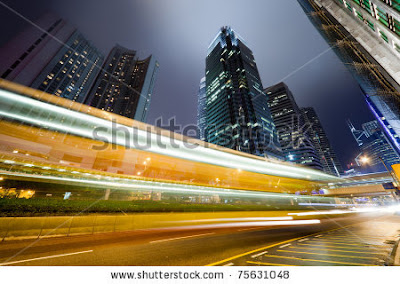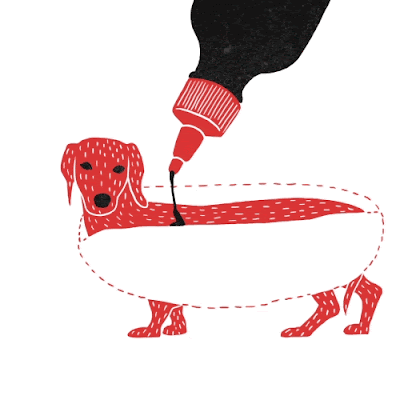New from NPR!啥是megacity?報給你知
下載聲音檔請點我
地球上的人實在是太多了!
你能想像,再過38年
全球將有七十億人口匯集在都會區生活嗎?
都會設計與城市的永續發展是當下政府的施政重心
交通 垃圾 資源分配與政府效能
更將是決定都會競爭力的幾個重要關鍵
閱讀NPR能夠學到新的字彙
比方說甚麼是pecking order
在地文化與國際能見度
這些詞彙的英文又是甚麼
還有最新的共商城市指的是甚麼?
看完下面這篇NPR
你就都學到了!
As More Move To Cities, A
New Take On Urban Design
Copyright © 2012
National Public Radio®. For personal, noncommercial use only. See Terms of Use.
For other uses, prior permission required.
From NPR News, this is ALL THINGS
CONSIDERED. I'm Melissa Block.
ROBERT SIEGEL, HOST:
And I'm Robert Siegel. By the year 2050,
some 7 billion七十億人 people will be living in cities. That will have a profound impact 深遠的影響 on our planet and force the world's
urban centers to adapt逼迫全球的都會中心去因應(大批居民的湧入). This
week, big thinkers from the public and private sectors representing
60 countries
met in Paris
to discuss the city of the future. NPR's Eleanor Beardsley was there.
ELEANOR BEARDSLEY, BYLINE: Think
about it: As many people who live on the planet today will be city dwellers居住在都市的人 just 38 years from now.
That's bound to鐵定 have a massive impact on economies經濟體, governments政府, societies社會 and individuals個人 in both the developed and developing world. For three days
this week, public, private and civil society公民社會 urban players都會人 gathered in this great city to see what they could learn
from each other. John Rossant with the host organization, the New Cities
Foundation, says the stakes couldn't be higher風險可說是越來越高.
JOHN ROSSANT: Two years
ago, for the first time in human history, over 50 percent of the
population of the world now lives in cities, and that trend is accelerating這樣的趨勢越演越烈. Every month, 1 million
people in the world move to a city. If we don't get cities right, we're kind of
- don't have a very bright future as humankind.
BEARDSLEY: Participants here say
there is a list of finite特定的/有限的 problems every city faces - traffic, garbage, water
- only the pecking
order權勢地位等級(此詞源自於鳥類,在禽類的社會中,占有優勢的鳥類可以用鳥喙去啄地位比較低的,鳥類用喙去啄的動作就是peck) varies. Indian businessman
Ravichandar is cofounder of City Connect, a platform平台 that brings together the private, public and nonprofit 非營利sectors to fix cities.
Ravichandar says the world's cities can learn from each other, but solutions must be
adapted to local culture解決方案應順應當地的文化. But local cultures are evolving在地文化卻是一直在演變當中, he says. Take America's
suburban car
culture.
RAVICHANDAR: There's this whole kids
who have grown up in a digital world數位世界, which has multitasking一心多用,同時做很多事情 and texting傳簡訊,
everything that they do. So typically, when they come of age長大了之後, unlike their parents who the car symbolized
everything in life, I think these kids are going to ask why am I wasting my
time driving the car when I could be doing so many other things?
BEARDSLEY: Ravichandar believes that
new generation will force America to develop better public and shared
transport. Cities are also talking about ways to adapt適應, change and reinvent重新創造 themselves. The mayor of Vancouver is striving to be the greenest
city. Tel Aviv以色列首都特拉維夫市 wants to be the Middle East's Silicon Valley矽谷. The lord mayor of Liverpool利物浦, Joe Anderson, just wants his city, once the second port
in the British
Empire, to be relevant重新在全球占有一席之地 again.
JOE ANDERSON: A hundred years ago,
we were still a huge city, and we've dwindled減少 and declined衰退 over the
years. And now, we're trying to reinvigorate為…重新注入新生命/活力 the
city, trying to
put it back on the global map again.試著讓它(利物浦市)站上國際舞台,受到全球矚目的意思.
BEARDSLEY: There are the freshly
built megacities超級大城 which are
hoping to avoid the pitfalls不幸/災難. China plans dozens
of them. And Saudi
Arabia沙烏地阿拉伯 is
building four new privately funded cities由私人機構或是集團出資所建造的共商城市. One of them is called King Abdullah Economic City國王經濟城. Currently, it is home to
fewer than 300
families. But the plans call for需要 it to have a population of 2 million by the year 2025.
BEARDSLEY: Saudi investor Fahd
Hamidaddin and urban planner Yousef Hamidaddin disagree over the viability可行性 of a privately built city.
FAHD HAMIDADDIN: So I'm basically
telling him that that's not going to work, and he's saying it's going to work.
Not only that...
YOUSEF HAMIDADDIN: Wait, wait, private-owned私人擁有的...
HAMIDADDIN: I didn't interrupt you.
I didn't interrupt you.
HAMIDADDIN: ...doesn't always work
as well...
BEARDSLEY: This is just one of many
conversations about getting cities right for the future打造未來的宜居城市. Eleanor Beardsley, NPR News,
Paris.
SIEGEL: From a corner coffee shop to
a park down the street, many of us have places that for us represent the heart
of our city. And even if your town's tourism office has never heard of your
favorite spot, we'd like to know what and where it is for an upcoming series.
Go to npr.org/nprcities to contribute.











留言
張貼留言